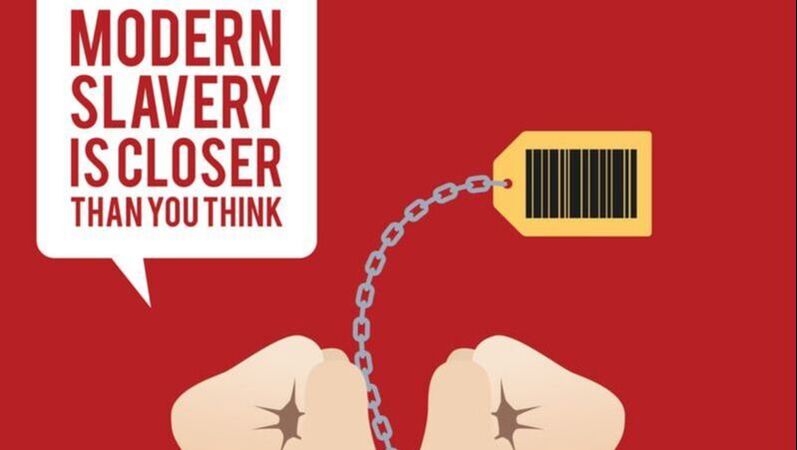AuthorRobin is an accomplished presenter, educator and media commentator. His articles cover topics such as healthy and efficient buildings, as well as better, more sustainable supply chains. Archives
November 2023
Categories |
Back to Blog
The use of solar photovoltaics (PV) is gaining momentum globally, and Australia is particularly fertile ground as sufficient sunlight falls to supply the nation’s total energy needs many times over; by the end of August 2021 there had been a total of 4,278,713 small-scale installations, with an additional 13,297 MW of large-scale renewable energy initiatives already operating.
However, one barrier to increasing solar power generation in Australia is the space required for solar infrastructure. Read more at: https://thefifthestate.com.au/columns/spinifex/agrivoltaics-growing-opportunities-for-aussie-farmers/
0 Comments
Read More
Back to Blog
WEBINAR: 'ISO:20400 INTERNATIONAL DISCUSSION ON SUSTAINABLE PROCUREMENT AND MODERN SLAVERY'8/12/2020 In this Sustainable Procurement and Modern Slavery webinar from 12th August 2020, hosted by Shaun McCarthy from ISO:20400 and Action Sustainability, Helen Carter, Valentina E Gurney, Chris Harrop and Robin Mellon are the speakers discussing various aspects of Modern Slavery, answering questions and discussing the differences in different countries and cultures. You can watch / listen to the recording of the webinar below:
Back to Blog
'NSW MODERN SLAVERY ACT 2018 SHOULD COME INTO FORCE' - LETTER TO THE PREMIER OF NSW, 20 JULY 202020/7/2020 An unprecedented consortium of more 116 organisations - including Better Sydney - academics, lawyers, community and faith leaders has come together to urge the NSW Premier to end delay and bring the state’s historic Modern Slavery Act into force by 1 January 2021, two and a half years after it was passed unanimously by both houses of parliament in June 2018.
In a passionate open letter to NSW Premier Gladys Berejiklian, the consortium stresses its concern with regard to the effect of the delay in increasing the numbers of people trapped in modern slavery and the expected impact of COVID-19 increasing the vulnerabilities of workers inside Australia and overseas within supply chains connecting products to Australia. Many of the signatories are also worried about what the unprecedented delay says about democratic processes in the State. “The Act was passed and assented in June 2018. Bringing it into force should have been a formality. Rather than proclaim the legislation into force, Gladys Berejiklian’s government took the unusual step of delaying its proclamation and then launching a parliamentary inquiry into the Act” says Paul Redmond, Emeritus Professor of Law at UNSW, one of the signatories. In the two years since the Act was passed, it is estimated that as many as 18 million people around the world may have been deceived or coerced into different forms of modern slavery. 9 million per year. 25,200 per day. 1,050 per hour. 1 new slave every 4 seconds. “The numbers are unconscionable”, says Jane Jeffes of War on Slavery. “Entirely avoidable delays have had a profoundly adverse effect on the lives of millions, with women and children the most vulnerable. Millions more people have been caught up in modern slavery since the Act was passed. That simply should not have happened or been allowed to happen. Other states are now looking at legislation that will strengthen Australia’s fight against modern slavery and we fail to understand why the NSW government hasn’t put the NSW Act into force as a source of pride.” The NSW Modern Slavery Act has been lauded internationally as having some of the world’s strongest antislavery reporting provisions including penalties, and significantly also directing all NSW government agencies to respond to the risk of modern slavery in their own procurement. “The legislation recognises that modern slavery is prevalent around the world and in NSW. What we buy may contribute to modern slavery crimes somewhere in the supply chain,” says Carolyn Kitto of Be Slavery Free. “The government had committed to a strong deterrent through ensuring that the goods and services NSW consumers, businesses and government buy is not produced by the slavery of others. I am sure the people of NSW and the parliament want to see the Act in effect.” The letter addressed to the Premier Berejiklian, requesting she expedite the process for the Act to come into force by 1 January 2021, was delivered to here on 20 July 2020. A full copy of that letter can be read here. The related media release can be read here. |

 RSS Feed
RSS Feed

